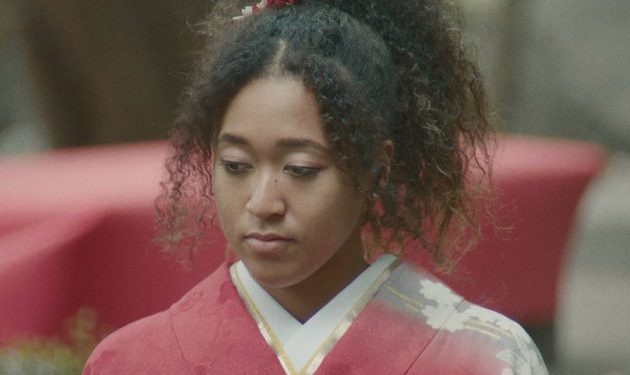The Conversation
28 Jul 2021, 06:39 GMT+10
On Friday, Naomi Osaka lit the cauldron at the 2020 Tokyo Olympics opening ceremony. This honour sent an important message to the world: Osaka represents a diversifying Japan.
Yet, some still question whether she really is Japanese. The question we should be asking instead is: who is Naomi Osaka, really?
Netflix’s new three-part documentary series attempts to answer this question. Director Garrett Bradley followed the tennis player over two years from her first grand slam win in 2018 to her third in 2020.
The documentary touches on her tennis career, her mental health and her call to change the format of post-match press conferences.
But it also gives viewers a closer look at Osaka finding her voice in the world as a young, mixed-race Japanese Haitian woman.
The difference between nationality and race
In the documentary, Osaka speaks about her decision to renounce her American nationality in 2019. Reflecting on the public’s response to her decision, she felt “people really don’t know the difference between nationality and race”.
She is right when she says there is a difference.
Nationality is a form of legal identification specifying our membership to a nation. Race refers to physical appearances, and is often described as a social construct: not determined by scientific fact, but rather by the social meaning collectively attributed to biological traits. To avoid uncomfortable conversations, some choose to use the word “ethnicity” instead of race, a term used to define groups based on invisible factors like language or customs.
Despite the difference in their meanings, race, nationality and ethnicity are deeply interconnected in the ways we discuss identity.
Osaka was born in Japan in 1997 to her Japanese mother and Haitian father. She moved to the United States when she was three and grew up there as a Japanese-American dual national.
During the two years when the documentary was in production, Osaka celebrated her 22nd birthday. According to Japanese Nationality Law, dual Japanese nationals are required to renounce one of their nationalities before they turn 22.
For many, the decision to forfeit one nationality is tricky, uncomfortable and, where possible, avoided by dual nationals only showing their Japanese passport at Japanese airports.
In my research on mixed-race Japanese youth in Australia, participants told me their dual nationality opens up economic and personal opportunities for them to live or work in Japan without the restrictions of a visa.
But perhaps more importantly, the thought of forfeiting their nationality was a great concern for those who saw it as an intrinsic part of their identity.
In the documentary, Osaka says her decision to become a sole Japanese national was an obvious one. “I’ve been playing under the Japanese flag since I was 14”, she says. “It was never even a secret that I was gonna play for Japan for the Olympics.”
But while it was obvious, it wasn’t easy. Some people saw this renouncing of her American citizenship as a decision to forfeit her Black identity:
Despite choosing to become a sole Japanese national, Osaka is both Japanese and Haitian, and holds deep connections to America, Haiti and Japan. The film follows her as she plays for Japan, wears face masks to the US Open in support of the Black Lives Matter movement, and travels with her family to the Osaka Foundation – a school for Haitian children established by her parents.
Navigating identity and expectations
Osaka isn’t the only person facing interrogation into their identity.
Many people of mixed-race heritage often have a sense of “racial impostor syndrome“: the sense of doubt they feel when others question the authenticity of their mixed-race background.
It is common for young persons of Japanese background living outside of Japan to only be beginner to intermediate speakers of Japanese. Speaking about her self-confessed “broken” Japanese skills, Osaka worries she is “doing something wrong by not representing the half Black, half-Japanese kids well.”
But Osaka’s openness about these difficulties is exactly how the half Black, half Japanese kids need to be represented.
Read more: When Naomi Osaka talks, we should listen. Athletes are not commodities, nor are they super human
It is important for us to challenge static ideas of race, ethnicity and nationality by sharing the voices of people of mixed backgrounds like Osaka.
Our identities are complex, and they change over time. There is more to being Japanese than fluently speaking the Japanese language, looking Japanese or holding a Japanese passport.
We shouldn’t forget who Naomi Osaka is. A strong tennis player, a passionate activist, and a mixed-race woman who represents contemporary Japan.
Author: Aoife Wilkinson – PhD candidate, The University of Queensland






